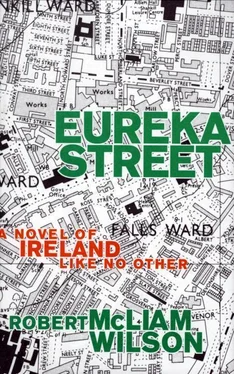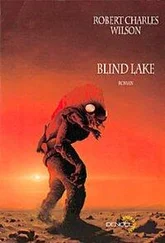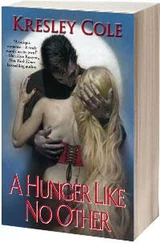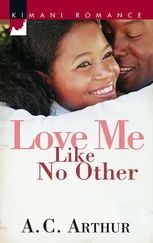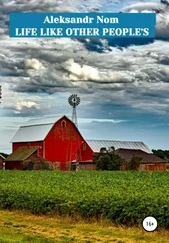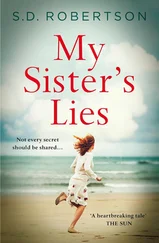The memories that came to her made her spine tingle with joy. One night she conjured the image of a woman washing her hair in the scullery tub of a poor house near the markets while her husband, sturdy but idle, scraped his scraped limbs in the hottest tub in Templemore Avenue baths. These were memories of her father and mother.
Her childhood surged back. She remembered how everyone on her street had avoided the Friday tickman, on his bike, motorbike or old tin car. Pay up and shut up. No palms were laid before his feet. She remembered sneaking down to the covered market when the Antrim women came to the iron-bound stalls to show what they would sell, throwing dappled light on the ground from the red shawls they used as awnings. She remembered their shrill shouts:
Tupporth here!
Aggie, where's the calico?
My man's going.
See youse in the tram shed.
She remembered childhood sweets and secrets. She remembered the smell of her father's cigarettes and shoe polish. She remembered fifties Belfast, buttoned-up, Presbyterian. She remembered winter mornings, her fingers growing cold in the scullery, losing the stored heat of sleep as her mother lit the fire.
Most of all she remembered Caroline. Her friend seemed to be a constant presence in almost all her recollections. They lived on the same street. They were in the same class at primary school. Their mothers were friends. They even played together on the same rope swing on the lamp-post at the bottom of their street. For forty-five years or more Peggy and Caroline had been together.
In Peggy's nitrazepam-free mind, their early years together were most vivid. The years that followed their girlhood and adolescence were smudged and murky in comparison with the glitter of those early times.
She could not have said that the friends loved each other dearly. It was more that their pasts and futures would have been unthinkable without the other. As they grew into women, this unspoken indivisibility increased. A few days after the bomb at Fountain Street, Peggy had spent a morning looking through all her old papers for a photograph of the two friends. She wept throughout the morning as she found photographs of her parents, obituary notices, letters from cousins she had forgotten, cheap old jewellery.
After a couple of hours, she had found the photograph, which was both more and less than she had remembered. Written on the back in faint pencil was the legend: Peggy and Caroline, May i 962. She started to cry again. She stared at it ruefully for an hour.
The picture, milky rather than faded with age, showed the girls sitting on the railings beside the City Hall. They wore patterned dresses with exuberant skirts. They smiled wide black-and-white smiles in a bright black-and-white world. They were eighteen. They were both beautiful. Their youthful hair and skin, the sheen in their eyes and the brightness of their smiles gave Peggy a desperate sensation in her stomach.
She remembered the day vaguely. A hapless bright Saturday, they had wandered the town, window-shopping with two boys from the Newtownards Road. One of the boys, Andy, the one who had taken the photograph, had been pursuing Caroline for weeks. Caroline had been joyously uninterested. In a few weeks' time, Andy, exasperated by their solidarity, would give Peggy a pair of old work trousers, telling her she might as well be Caroline's boyfriend since they did everything else together.
The photograph made Peggy feel indescribable things. It made her deeply sad and filled her with joy simultaneously. The photograph represented a junction in their lives. A time before Peggy had met Hughie and Caroline had met Johnny. Their black-and-white selves were frozen in the photo. A time when everything was different. When Belfast itself was different. She inspected the soft grey out-of-focus metropolis in the background. Buildings had disappeared and new ones had sprouted; violence and husbands had come, their effects equally devastating.
But the picture showed two pretty eighteen-year-olds for whom all possible futures were possible futures. It showed the point where the road had forked. It demonstrated where it had all gone wrong. And, yes, her breasts had looked amazing in that dress.
For days, the suddenly untranquillized Peggy had stayed quietly in her bedroom, thinking. She kept the photograph by her bed and constantly referred to it as if for cues or clues. She thought about the man who had come soon after the photograph had been taken. She remembered Hughie's drunken, inexpert fumbling amongst her clothing. She remembered how old he had seemed. She couldn't remember having said yes. She couldn't remember having been asked.
Peggy became pregnant and Caroline had perhaps married Johnny out of pique. Hughie failed to marry Peggy and Peggy had moved into Eureka Street and produced her fat, bald baby. Few now could remember the kind of courage which that then took. Hughie didn't even live with her. He stayed sometimes but, as he told Peggy, he had other commitments.
She vaguely remembered marrying him just before her parents had died. She recalled that it did not dull the shame for them. She could not remember Hughie leaving. His latest absence just stretched out and became permanent. She remembered being left alone with her only son. After a couple of years, Caroline and her family had moved into the house across the street. Her life took on the gloomy pattern that would not alter for nearly three decades.
Thirty years of loneliness. Twenty years of growing old. Ten years of various tranquillizers, sleeping pills and antidepressants.
Then Chuckle got rich.
Then she stood on Fountain Street and watched everybody die.
That view had changed Peggy for ever. The two women, thrown so violently together again, probably realized at the same time. What had seemed like ever-presence had been love.
It happened on the night that Chuckle had called from America to say he was flying back in three days' time. He was getting married and having a baby, she didn't have to worry about him any more.
They had both been ashamed, they had both been scared. But in the end it was pretty easy. They took off their clothes and smiled. Both women had thought in their private hearts that this event would lead to disgust as they beheld again each other's bloated old flesh, but that did not happen. Each could only find beauty in what they saw.
Caroline was surprised that she was not surprised. Peggy was surprised by this thing between her legs that she had ignored for so long. Peggy had had little sex: Chuckie's mother had slept with only one father. They had copulated only thirty or forty times. This double score of erotic incidents came to represent the world of sex for Peggy. It was a small and slightly vicious world. Despite the infrequency of their lovemaking, she came to know Hughie's habits well. She extrapolated at first, using her experience with Hughie to represent the activities of all men. She concluded that all men wiped their dripping foreskins on their women's thighs after sex, that they all got that brutal look in their eyes when they came. Then she stopped extrapolating, considering that it was unfair to attribute Hughie's foibles to the entire gender. In the end, from what Caroline told her, she changed her mind again and extrapolated like mad, suspecting that, after all, knowing one was knowing them all.
The next morning, the two women had chatted like girls over breakfast. Sunlight flooded the kitchen and the little house was transfigured. A bridge had been built between them as they were now and as they had been in the photograph. For the first time in her adult life Peggy had decided that this was what she wanted.
It was difficult, of course. Sandy Row was scandalized. Caroline's husband went unviolently berserk and left Eureka Street with the eighteen-year-old youngest son. Peggy and Caroline were visited by vicars and missionaries and no one on Eureka Street spoke to them. They nearly got into the newspapers. It looked like Protestant Belfast would never deal with their consensual but idiosyncratic behaviour.
Читать дальше
